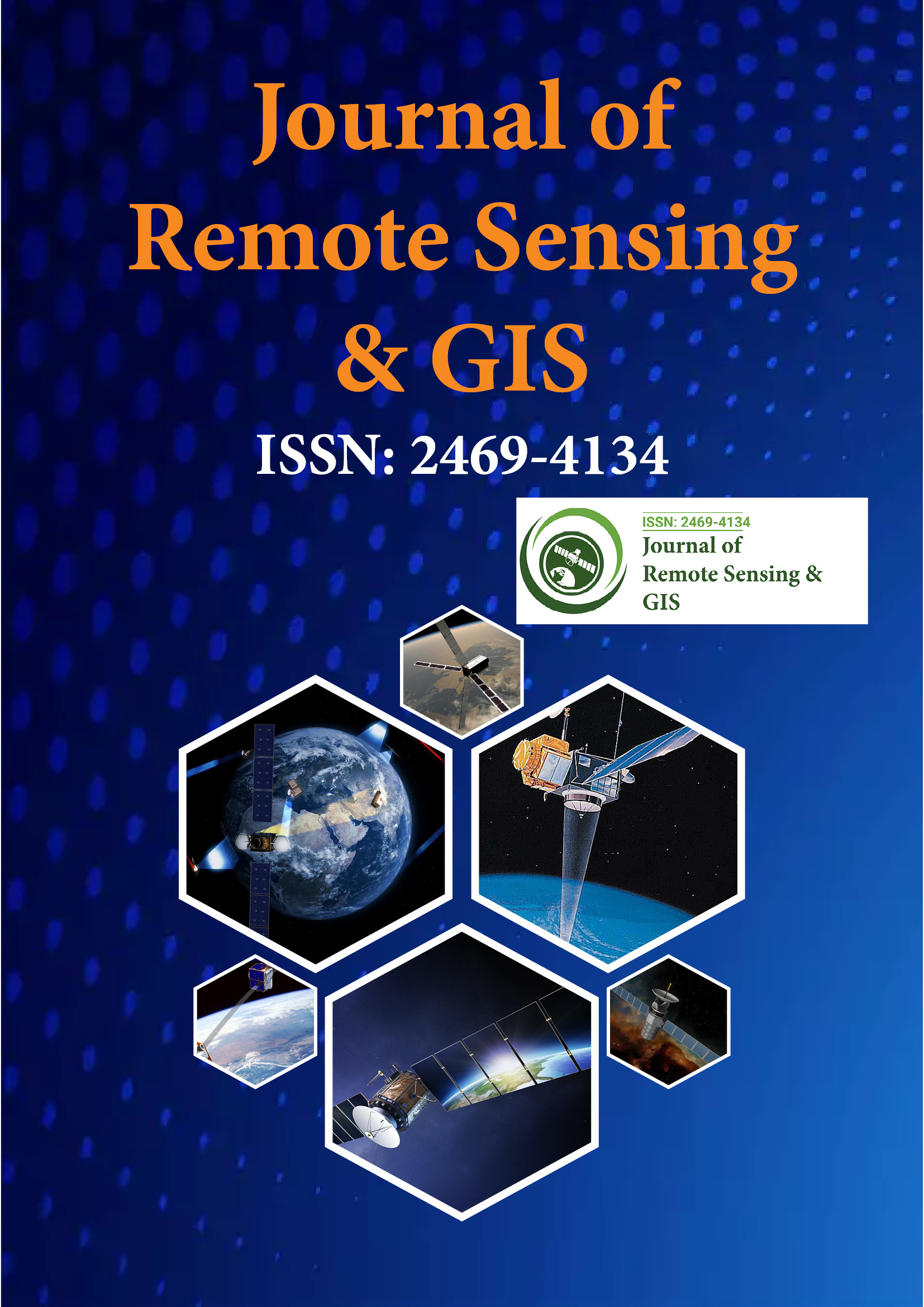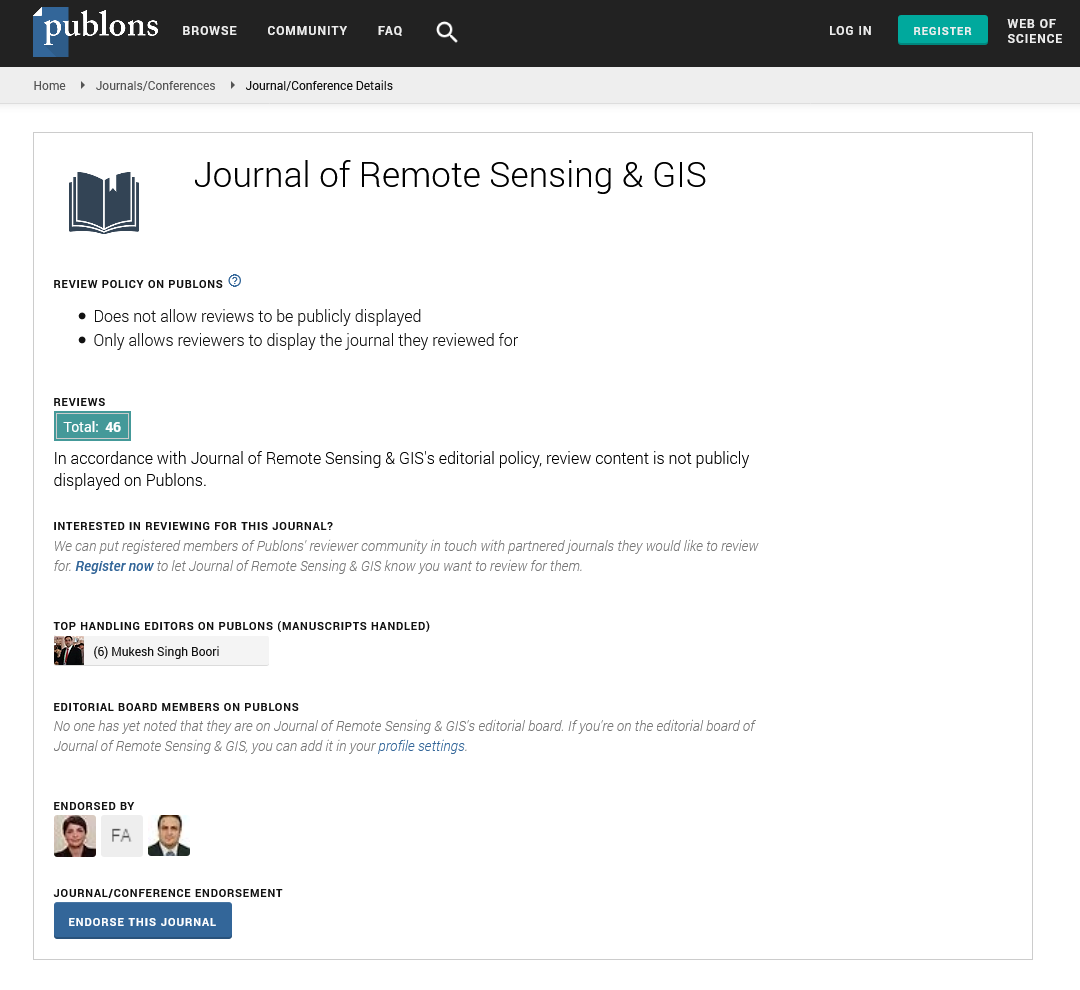Indexed In
- Open J Gate
- RefSeek
- Hamdard University
- EBSCO A-Z
- OCLC- WorldCat
- Publons
- International Scientific Indexing
- Euro Pub
- Google Scholar
Useful Links
Share This Page
Journal Flyer

Open Access Journals
- Agri and Aquaculture
- Biochemistry
- Bioinformatics & Systems Biology
- Business & Management
- Chemistry
- Clinical Sciences
- Engineering
- Food & Nutrition
- General Science
- Genetics & Molecular Biology
- Immunology & Microbiology
- Medical Sciences
- Neuroscience & Psychology
- Nursing & Health Care
- Pharmaceutical Sciences
Editorial - (2021) Volume 10, Issue 1
Geography of Seas and Coasts: Integrating environmental and social processes
Li S Research Scientist*Published: 29-Jan-2021, DOI: 10.35248/2469-4134.21.10.e115
Abstract
-
Editorial
Coastal regions are areas of high ecological and economic importance that are exposed to anthropogenic pressures such as increased population densities or demands for marine resources. Moreover, they are directly affected by climate change through sea level rise and increased storminess. Consequently, coastal margins are considered under threat and new concepts are sought to protect them sustainably while maintaining their economic and ecological value. Within coastal management and policies, awareness increased that traditional approaches are seriously challenged, but the development of new strategies is slowed by the limited understanding of environmental processes, their dynamics and implications for socio-economic systems.
Interdisciplinary research will expand the existing knowledge base and provide data for science, policy and practice to improve human interaction with coastal systems and increase the resilience of coastal communities. Under this Research Topic, we gather work with a particular focus on coastal regions from the following domains:
• Marine Aquaculture & Resource Use (Mussels, Algae, Fish, Beach Wrack)
• Water Quality and Marine Litter
• Land based pollution in freshwater ecosystems
• Ecosystem Services and Indicators
• Use and Protection of Coasts
• Spatial Planning & Risk Management
• Historic / Long-term Coastal Development
• Coastal Dynamics and Processes
• Climate Change, Sea Level Rise, Coastal Hazards, Extreme Events
• Coastalzonemanagement
Marine megafauna are iconic and charismatic. The threatened or endangered status of many species, the great economic importance of some taxa and their frequent role as keystone species in ecosystems has resulted in many becoming flagships for research by both professional and citizen scientists.
The body size and mobility of marine megafauna means that their populations tend to be spread across wide ranges, multiple management jurisdictions and national boundaries. In contrast, research efforts are often compartmentalized, separated by both geography and approach. These barriers to progress have begun falling away in recent years, as researchers recognize the imperative to pool data and resources into collaborative studies. As these efforts begin to gather momentum, it is now an appropriate time to look forward to the key research directions that these new efforts are taking, the ground they have covered and the goals to which they aspire. We invite researchers working on different components of the fauna to identify future directions in research for each of the species or groups of similar species that are encompassed by the term marine megafauna. This includes marine mammals, marine reptiles, birds and fishes. The aim of this Research Topic is to provide a consensus on a roadmap for future research, to identify pitfalls and shortcuts and to accelerate progress towards key goals that are informed by and tailored to the needs of the community of researchers working on the biology and ecology of these animals. We welcome contributions from a wide range of coastal research disciplines, from natural sciences via engineering to governance and policy making, to foster exchange between the disciplines. Within this Research Topic, we encourage interdisciplinary work to strengthen expertise based on a wide variety of tools such as empirical and field data, physical and mathematical modelling. This topic is open to original research papers, (mini) reviews, opinion papers, methods papers, and perspectives papers. It provides primarily the opportunity to publish contributions presented at the 35 th and 36 th annual meeting of the working group ‘Geography of coasts and seas’ (AMK).
Citation: -
Copyright: -

